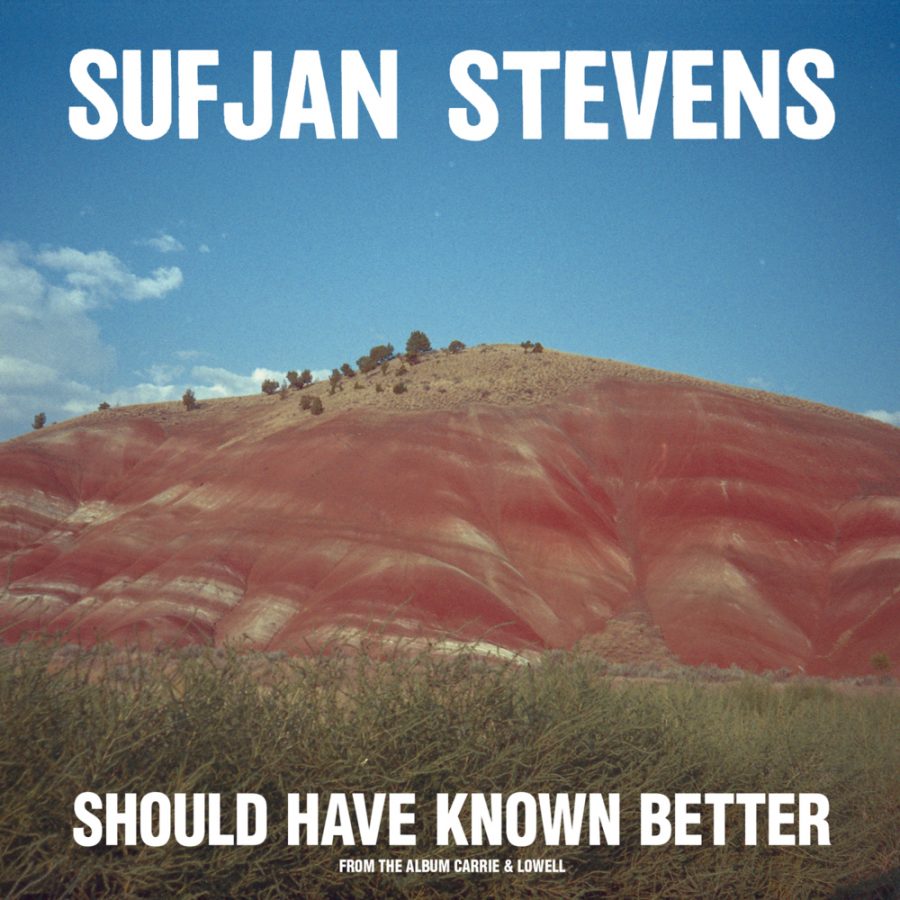WVAU’s #2 song of 2015: "Should Have Known Better" by Sufjan Stevens
December 30, 2015

Courtesy of The Daily Gazette
Ah, yes, the token feelsy Top 10 songs. Because even us angsty college hipsters have to let our dammed-up emotions flood out in private every once in a while. The wide appeal of “Should Have Known Better” likely stems from its versatility as both a good sob-into-the-wind AND peacefully-smile-through-the-car-window euphoric/melancholic anthem.
Stevens is a master at pulling heartstrings, and this hit is certainly not an exception. He fishes for feelings like a pro, opening his song with light and bouncing acoustic chords. Their slight echo accompanied by Steven’s airy voice is enough to give anyone shivers. He keeps his work relatively minimalistic, only adding in an ethereal choir and a keyboard later on—an effective tactic to keep his work intimate and organic. About halfway through the song, gears switch and the song’s vibe changes slightly. It becomes more upbeat and hopeful sounding. However, the cheery appearance of the song is a bit of a fa̤ade masking the deeply conflicted vocals.
When analyzed, the song’s lyrics are truly inspiring. In a word, “Should Have Known Better” is Intimacy. A tale of lost intimacy between people, open intimacy with listeners, and—possibly the most daunting task to achieve—intimacy with oneself. Stevens shares with listeners snippets of a tale riddled with regret, assembling memories like a collage of short clips hung together artfully on a wall. He recalls the loss of someone unforgettable, dredging up wells of grief and remorse. All the while, he tries to convince himself he is “light as a feather” and “bright as the Oregon breezeÛ. After the bridge, he comes to the sobering realization that he “should have known better/Nothing can be changed/The past is still the past/The bridge to nowhereÛ—in effect trying to rationalize a way to get rid of all his overflowing grief. Even with this realization, Stevens acknowledges that his feelings are still present; emotions are an inescapable aspect of the human experience, and are impossible to truly shut out with a “black shroudÛ. Instead of falling into the dark well of regret, Stevens chooses to focus on the light in his life.
This song weaves a tale of oscillation: an oscillation between the head and the heart, an oscillation between the past and the present, an oscillation between joy and sorrow. A relatively complex and daunting topic to depict in a five minute song, Stevens shatters his goal and does so with such effortlessness that his motives could easily go unrecognized. It is far too easy to get caught up in the intricate fretwork—to lose sight of the forest by getting caught in the trees.
“Should Have Known Better” reminds us of what it’s like to be human. Sadness is an inescapable part of life, but more often than not we try to hide it and reduce it to nothing more than a shadow of happiness. In actuality, sadness and happiness are complimentary beings equal in size and representative of each other—they are balanced. And Stevens knows that life is about balance. Both ends of a spectrum are needed for the spectrum itself to exist. Sometimes we neglect our emotional side because it isn’t convenient for us, or because it is seen as a burden in a world that values mind-power over sensitivity. However, all emotions are just as important and just as valid as any other sensations. Stevens discusses the flip-flopping between intense feelings of grief and euphoric feelings of hope, coupled with a pivoting between the head and the heart. In some ways these two spectra are intertwined, using the head to refocus himself and stimulate his euphoria. But his theme of oscillation shows listeners how it’s impossible to appreciate the highs of life without knowing the lows. And though the lows may be intense and seem inescapable, they make happiness even more blissful. Stevens reminds us of what it’s like to feel. He reminds us of what it’s like to be human. And that’s beautiful.















